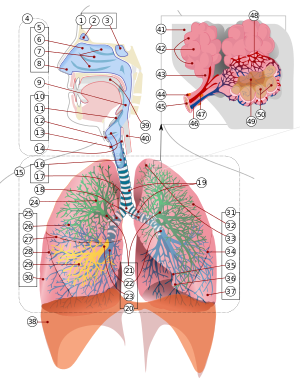
By Ned Dagostino
Cholesterol is a vital element for our health and
well-being. There are two basic types of cholesterol: HDL
cholesterol is good for our health,
LDL cholesterol is bad
for our health.
The LDL cholesterol and HDL cholesterol levels are
maintained within a normal range by the body's natural
regulatory mechanism. Sometimes this regulatory mechanism
malfunctions, or maybe the body is flooded with cholesterol
by ingestion. In any case the
blood cholesterol levelexceeds the normal range. This leads to a serious condition
which can lead to severe health problems.
LDL means 'fatty proteins of low density'. This in turn
means that LDL cholesterol tends to be loose and thick. LDL
cholesterol circulates with the blood and sticks to the
inner walls of the blood vessels, forming plaque and
gradually reducing the vascular passage. This condition is
called arteriosclerosis which results in
atherosclerosis,
meaning degeneration of the blood vessels.
Blood backs up from this point leading to high blood
pressure which severely stresses the heart. Worse, small
bits of the LDL cholesterol blockage can get dislodged and
flow down with the blood. If these bits of LDL cholesterol
enter a capillary, which is a very fine blood vessel, the
capillary gets blocked starving the areas served by the
capillary network of vital blood. If this happens in the
brain, then areas of the brain just shut down leading to a
form of paralysis called a 'stroke'. If the blood flow to
the heart itself is cut off, a heart attack occurs possibly
leading to a fatality. These are just two situations which
can occur when LDL cholesterol exceeds the normal limit.
There are a great number of similar situations, collectively
called cardiovascular disease, which are directly linked to
the excessive LDL cholesterol level.
Heart disease can be prevented, or the risk of getting it
can be reduced, if we follow some very simple health
guidelines. The first is to counterattack the invasion of
LDL cholesterol into the body. LDL cholesterol gains entry
into the body with the food we eat. So you should mount a
watch on the kind of food you eat.
Saturated fats are heavy
with LDL cholesterol and must be shunned. You can and should
include the healthy
fats into your diet (e.g. omega-3 fats
found in fish) because they actively help to reduce the bad
LDL cholesterol. lots of water helps the circulatory and
excretory functions of the body, which at once improves
health and eliminates the bad LDL cholesterol.
Change your cooking medium from heavy saturated fats to
unsaturated fats and oils. Virgin
olive oil is good for your
heart. These dietary changes will be very beneficial in your
battle against heart disease.
Cigarette smoking is bad for health. It harms the body in
more than just one way. Smoking increases the level of LDL
cholesterol. So quit now and your LDL cholesterol will be
gone tomorrow! The steps outlined in this article are very
easy to implement. You will avoid the risk of heart disease
if you follow them.
Medical research shows that stress leads to LDL cholesterol
buildup. Lowering your stress level will lower your blood
LDL cholesterol too. The moral of the lesson is that you
should relax more often, give up those activities that add
to your stress, and pick up those activities that reduce
your stress.
To sum up, LDL cholesterol can be controlled by eating foods
which are free of saturated fats, exercising, quitting
smoking and ridding yourself of stress. The worst thing you
can do is to panic about high LDL cholesterol levels. This
article is meant to educate you about the cause and
prevention of heart disease, not scare you. Use what you
have learnt in this article to control the LDL cholesterol
situation. Once that is under control, you can say that the
risk of heart disease is under control.
So, have you had your cholesterol tested lately?
To read more about
(
http://www.reduce-high-cholesterol.com/Reduce_Cholesterol.html)
how to reduce cholesterol go to
http://www.reduce-high-cholesterol.com. You'll also find out how an
easy
(
http://www.reduce-high-cholesterol.com/Cholesterol_Test.html)
over the counter cholesterol test can help you keep an eye
on your levels and decrease the number of costly trips to
the physician.
 Jasminum, or Jasmine as it is better known is an evergreen shrub. It is a vigorous deciduous twining climber with green stems and pinnate leaves.
Jasminum, or Jasmine as it is better known is an evergreen shrub. It is a vigorous deciduous twining climber with green stems and pinnate leaves.

![Reblog this post [with Zemanta]](http://img.zemanta.com/reblog_e.png?x-id=3baa499d-a6e3-4415-bf9d-388ff30269e8)





![Reblog this post [with Zemanta]](http://img.zemanta.com/reblog_e.png?x-id=d986c64f-d6ce-416e-a76f-693f251f5c0f)

![Reblog this post [with Zemanta]](http://img.zemanta.com/reblog_e.png?x-id=2638026b-377c-49a0-a3d6-75b81a868fa2)

![Reblog this post [with Zemanta]](http://img.zemanta.com/reblog_e.png?x-id=9379578b-a3bf-44ff-a36a-fd30ac4ee4ce)



![Reblog this post [with Zemanta]](http://img.zemanta.com/reblog_e.png?x-id=639fde5d-39d1-4316-adec-0d695caf3bac)


![Reblog this post [with Zemanta]](http://img.zemanta.com/reblog_e.png?x-id=8e2c15dc-41df-4657-bede-c0e5bbb7991e)




![Reblog this post [with Zemanta]](http://img.zemanta.com/reblog_e.png?x-id=d0677f7c-19ad-41d0-b638-1445dc074c4b)

![Reblog this post [with Zemanta]](http://img.zemanta.com/reblog_e.png?x-id=ad47df68-fe55-4da4-8457-66bad3be2343)

![Reblog this post [with Zemanta]](http://img.zemanta.com/reblog_e.png?x-id=7dfea6ab-2668-45db-b308-e29f165c2cc8)

![Reblog this post [with Zemanta]](http://img.zemanta.com/reblog_e.png?x-id=3f6fb96e-2a27-47c6-be78-e33727e3f780)




